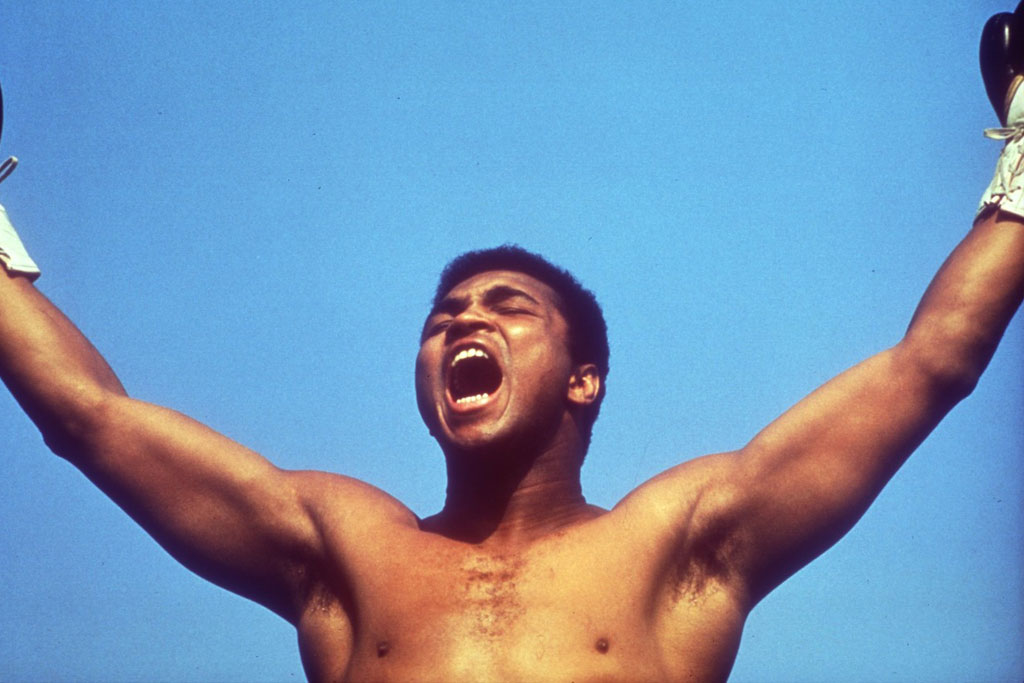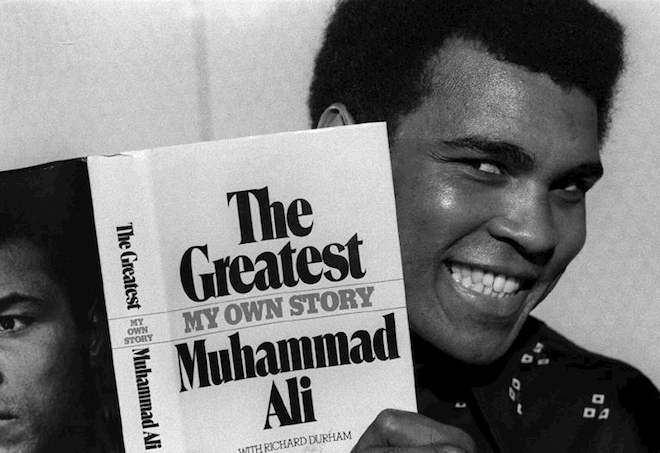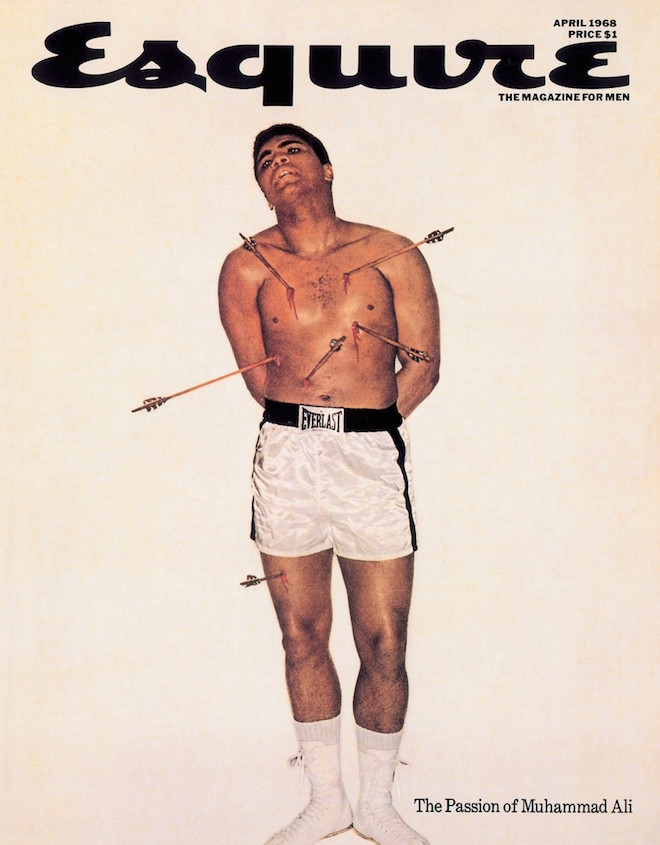Junkee Reading List: Seven Great Things To Read About Muhammad Ali
Some pieces about The Champion that you may have missed.

This week, Muhammad Ali died at the age of 74. Even though it still seems so strange to think that someone as powerful, as tough and as omnipresent as Ali can be gone, his passing has prompted countless thoughtful and engaging pieces of writing about his role as an icon in sports, pop culture and of politics.
It’s also led to the discovery of some forgotten gems, like his 1974 appearance on Candid Camera (also featuring some very startled kids).
Here are a few of our favourite pieces about The Champion:
–
‘If You Don’t See Blackness, You Didn’t See Muhammad Ali’ By Kara Brown, Jezebel
A piece that challenges the popular idea that Muhammad Ali “transcended race”, articulating how important Ali was as an advocate for loving one’s own blackness. Brown argues the idea that the “People’s Champion” belonged to everyone, can result in the erasure of the black experience.
“To subvert the racial politics and black identity of Muhammad Ali, of all people, is astonishing on the level of trying to use Martin Luther King Jr. quotes to reprimand Black Lives Matter. That anyone had the instinct to do so is a reminder of how frequently black Americans are separated from their race as soon as white America deems them great.”
—
‘Muhammad Ali Evolved From A Blockbuster Fighter To A Country’s Conscience’ by Wesley Morris, The New York Times
Wesley Morris looks at Muhammad Ali’s entire career as a fighter, entertainer and a sometimes flawed, always compelling political figure, weaving in big moments in pop culture that impacted Ali’s story.
“He was at the center of American culture in part because he had turned boxing into a condition of the American self: punch or be punched. With him, boxing wasn’t just a sport but a referendum on the state of the country.”
—
‘Muhammad Ali: Champion of the World’ by Kevin Olbermann, The Ringer
Kevin Olbermann has worked as a sports writer in the US for almost 40 years, and has had multiple encounters with Ali (including one where Ali doodled on a tablecloth instead of paying attention at a press conference, and another when he became convinced that Ali was telepathic).
“Maybe there was a conventional explanation provided by a heightened mutual empathy and his ability to instantly connect with others, a super skill not found in one man out of a billion. But no one who met him nor even came close to him in a crowd would deny that Ali seemed to glow, or transmit, or vibrate in some nonverbal way. You could see him with your eyes closed. You could hear him when he wasn’t speaking.”
—
‘The Greatest: Muhammad Ali’s Hip Hop Legacy’ by Hanif Willis-Abdurraqib, MTV
People often speak about Muhammad Ali’s way with words and ability to make off-the-cuff trash talk sound like an electric performance of beat poetry, but in this piece Hanif Willis-Abdurraqib makes the case that Ali was the first real hip hop MC.
“Ali bewildered his opponents before even having to throw a punch. This is, for better or worse, the heart of the modern rap battle. For many, Meek Mill dragging Drake’s writing inauthenticity into the light should have been enough. In another era, they say, this would have killed his career. This would be the first-round knockout of a former champ, the new champ standing on the ropes and taunting the crowd. But there was Drake, quicker, wittier, covering the Internet in jokes and memes while throwing jabs, turning his opponent into a joke before Meek could gain footing. This is, to some degree, what Ali gave the culture: a battle that is more than just a battle. A spectacle. Something to laugh at, a grand visual moment that comes with a side of ass-kicking.”
–
‘Remembering Muhammad Ali’ by Mark Jacobson, New York Magazine
Okay, this one might make you cry a bit, so be warned. Jacobson begins the piece by recounting his own interaction with Ali as a kid — in which Ali asked him to help an old woman cross the street — and then discusses some of the champ’s hardest fights.
“A little old lady was trying to cross the street, but there was too much traffic. Ali motioned me to take her left hand. He had the right. Taxis barrelled toward us, but Ali held up his palm. The cars stopped, maybe the whole world stopped, while we walked to the other side of the road. ‘We got you across, ma’am,’ Ali said.”
—
‘God’s Men: Muhammad Ali and Malcolm X’ by Doreen St. Felix, MTV
An informative piece that examines Muhammad Ali’s politics and faith, and how these two impulses intertwined when he was at the height of his boxing career.
“Through the guidance of Malcolm X, Ali received the clarified version of a worldview he couldn’t previously articulate. By extension, the Nation of Islam, led by Elijah Muhammad, provided the tentpoles of a stable organisation for Ali to join. The man who was focused on demolishing others in the ring was searching for fraternity, and for God, outside of it.”
—
‘How Muhammad Ali’s Iconic Esquire Cover Helped Cement a Legend’ by Tim Grierson, Rolling Stone
An interview with George Lois, who was Esquire magazine’s art director responsible for the 1968 cover of Muhammad Ali riddled with arrows. The iconic image inspired a 50-year friendship between the men. (Fun fact: apparently George Lois was the inspiration for Mad Men‘s Don Draper.)
“Ali posed for the photo while Lois’ team attached six arrows to his body to mimic the Botticini painting. The champ quickly internalised the martyr conceit. Lois remembers that during the shoot, Ali said, ‘Hey, George…’ which always meant he wanted to talk. He took his right hand out from behind his back and pointed at each of the arrows. And then he’d say the names of the people in this world that were out to get him. He’d point to one arrow: ‘Lyndon Johnson’. The next one: ‘General [William] Westmoreland [who led the Vietnam operation]’. Then: ‘Robert McNamara’. Each of the arrows [was] a person in the government that had hurt him. I can’t even tell you how stunning it was.”
—

